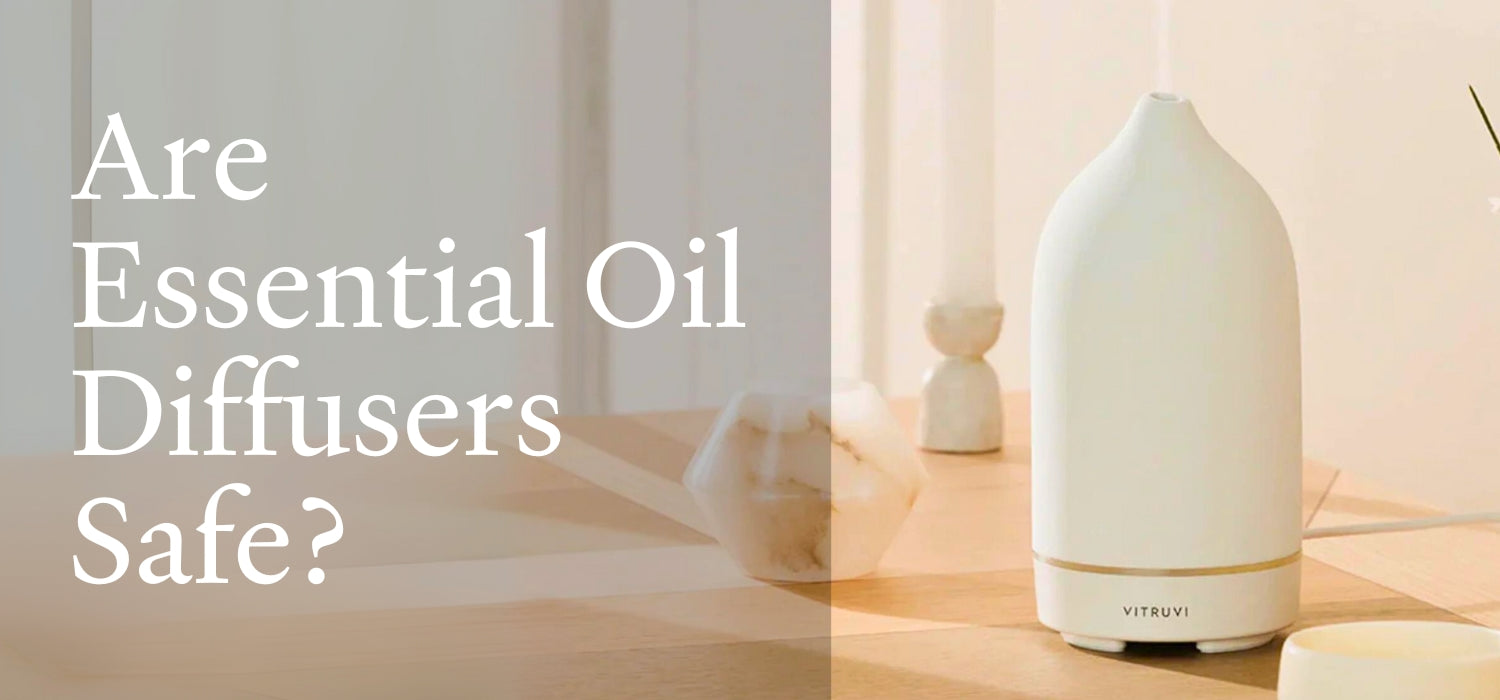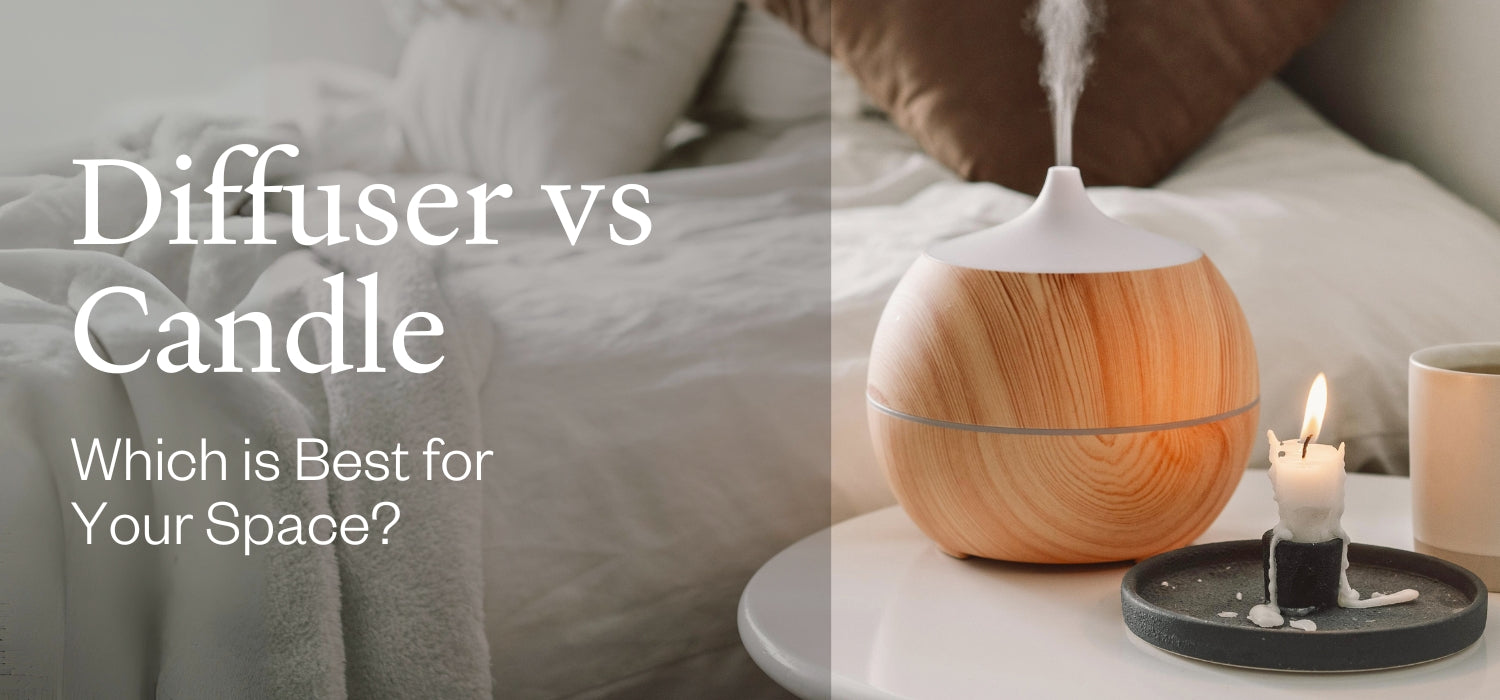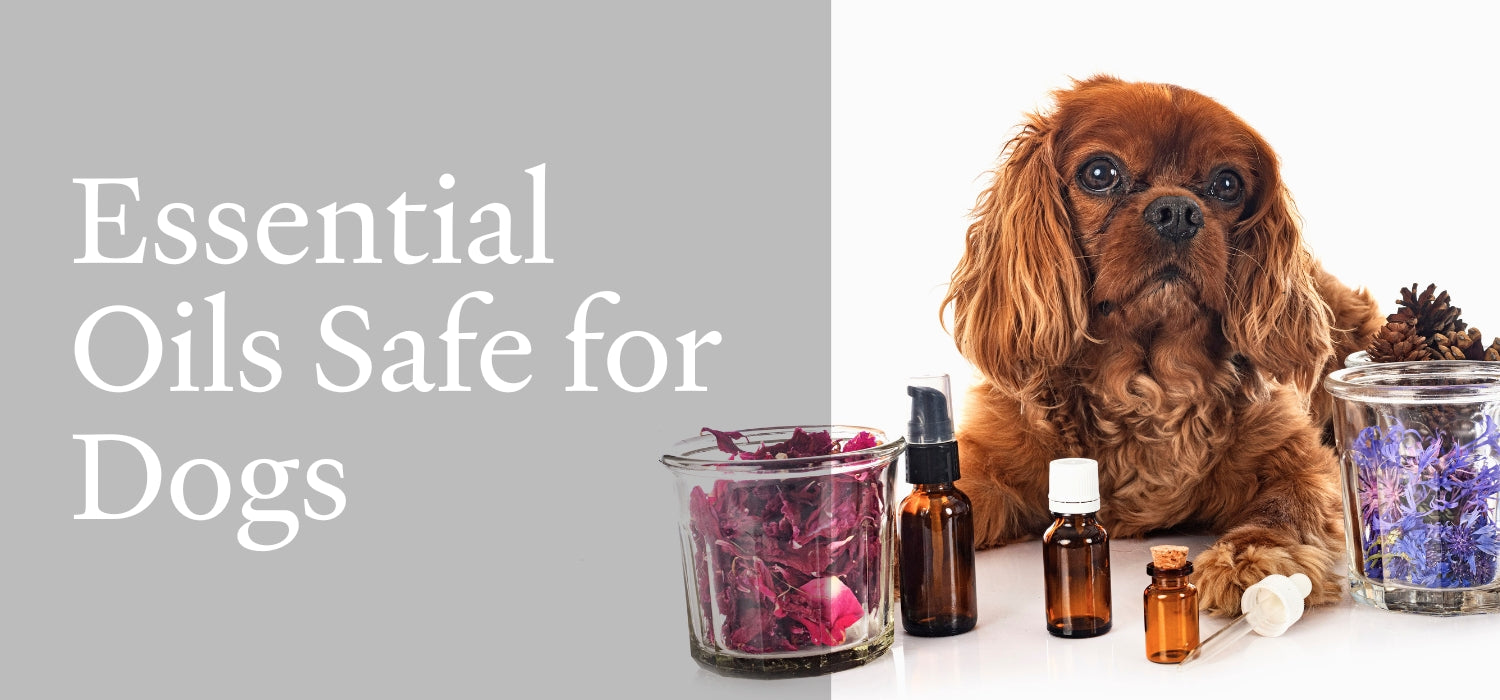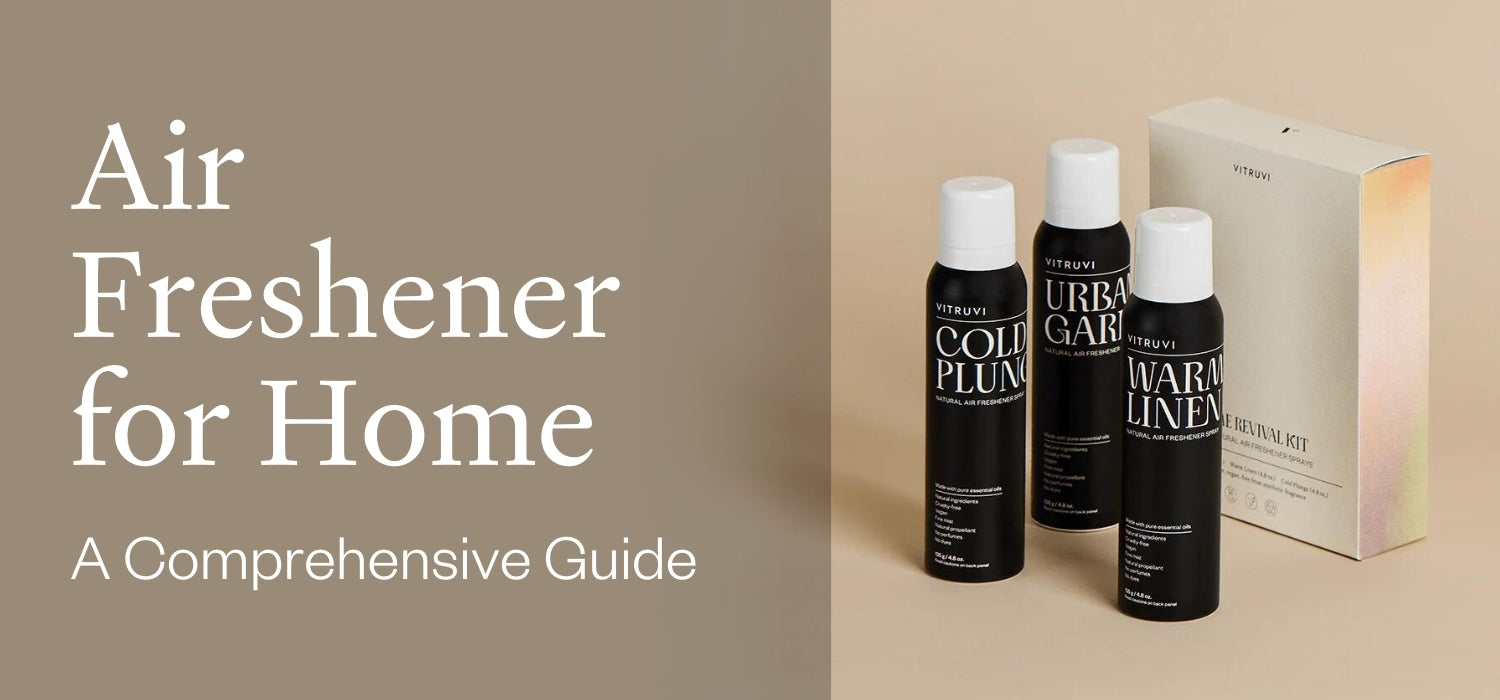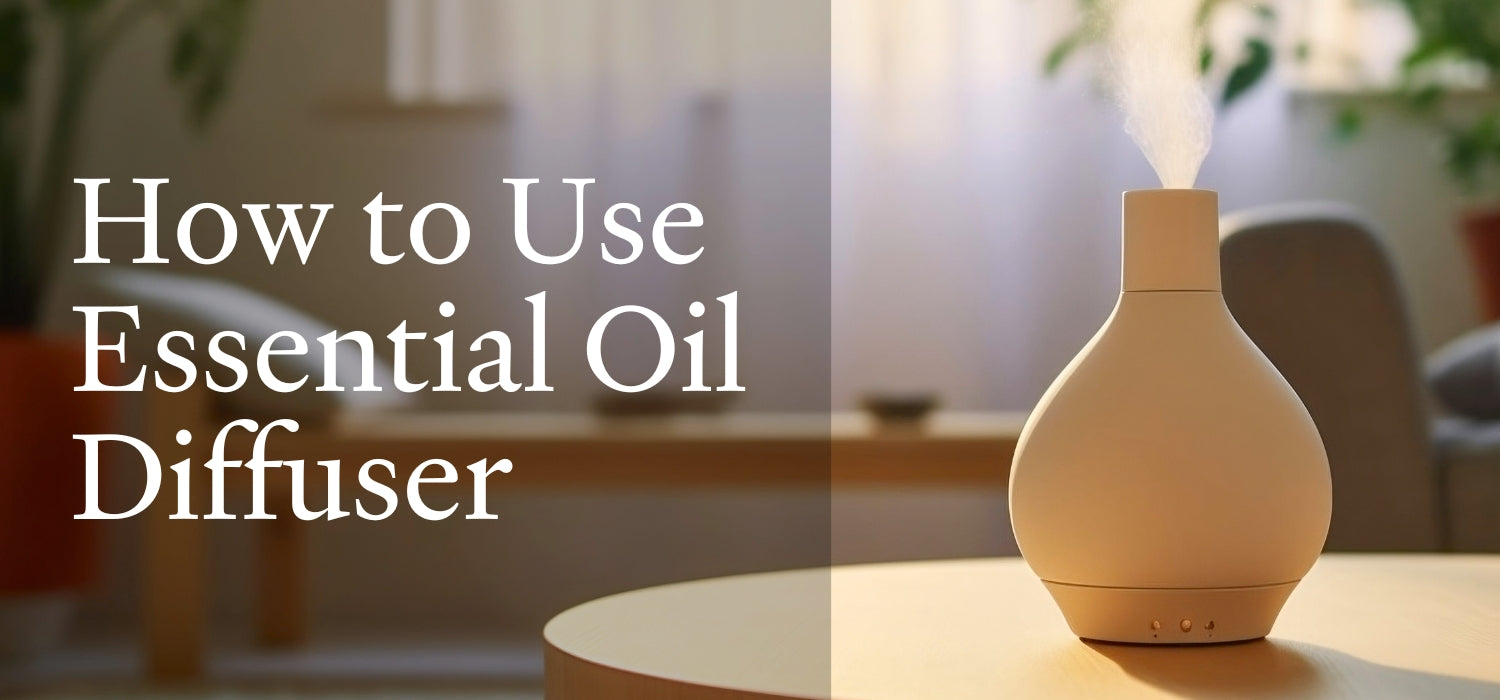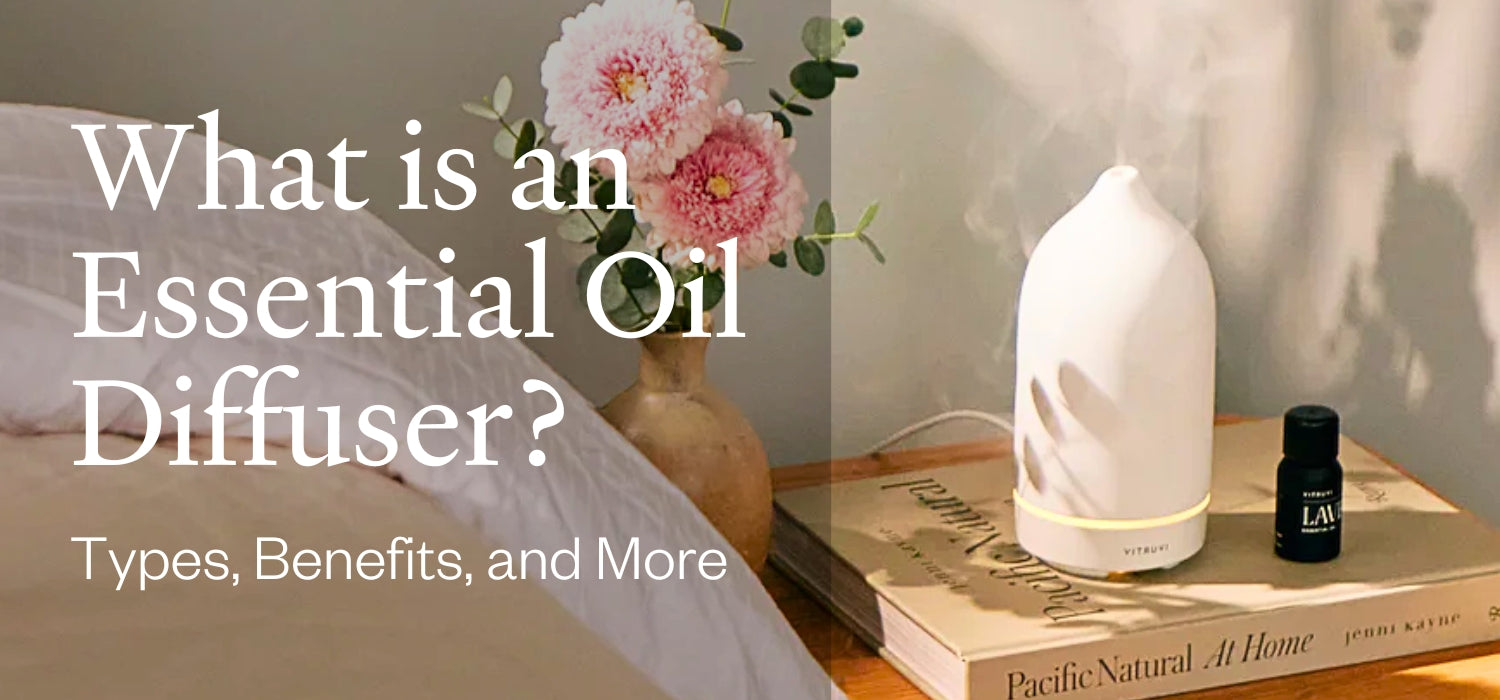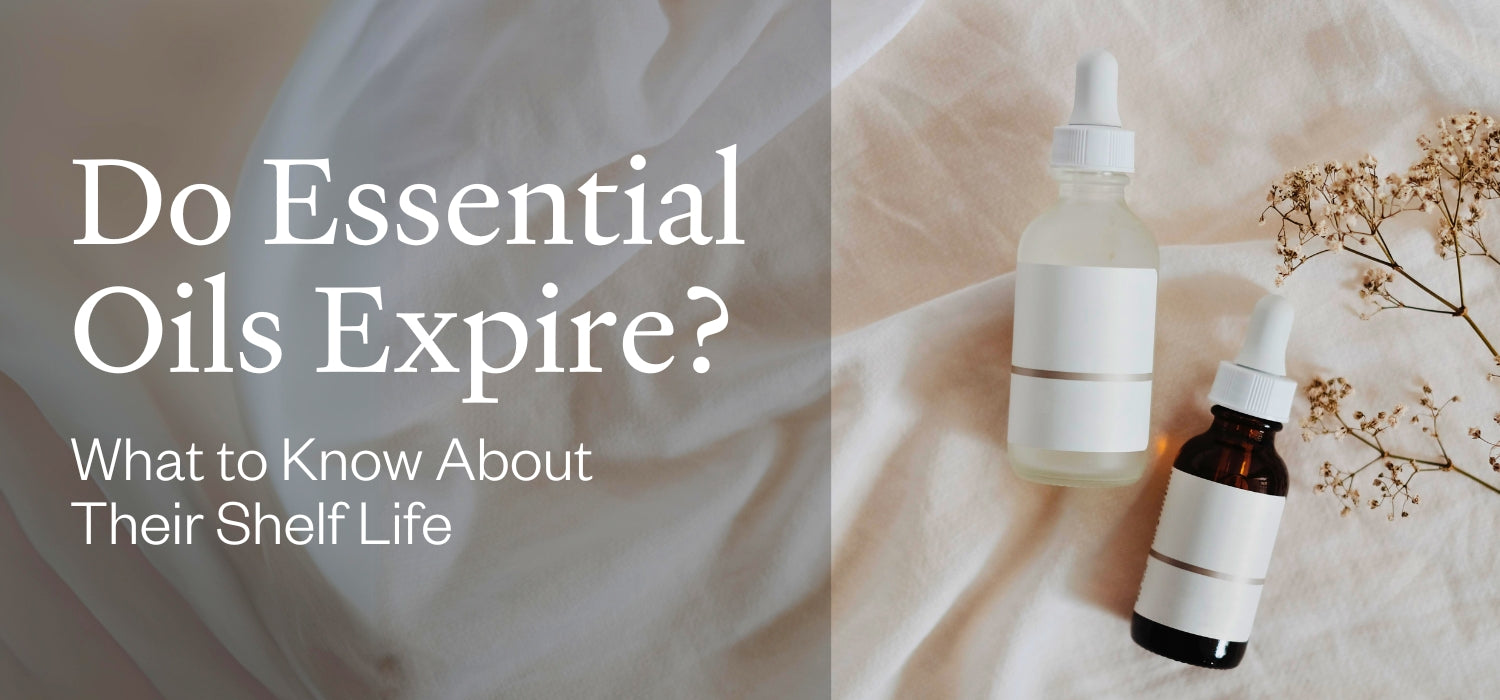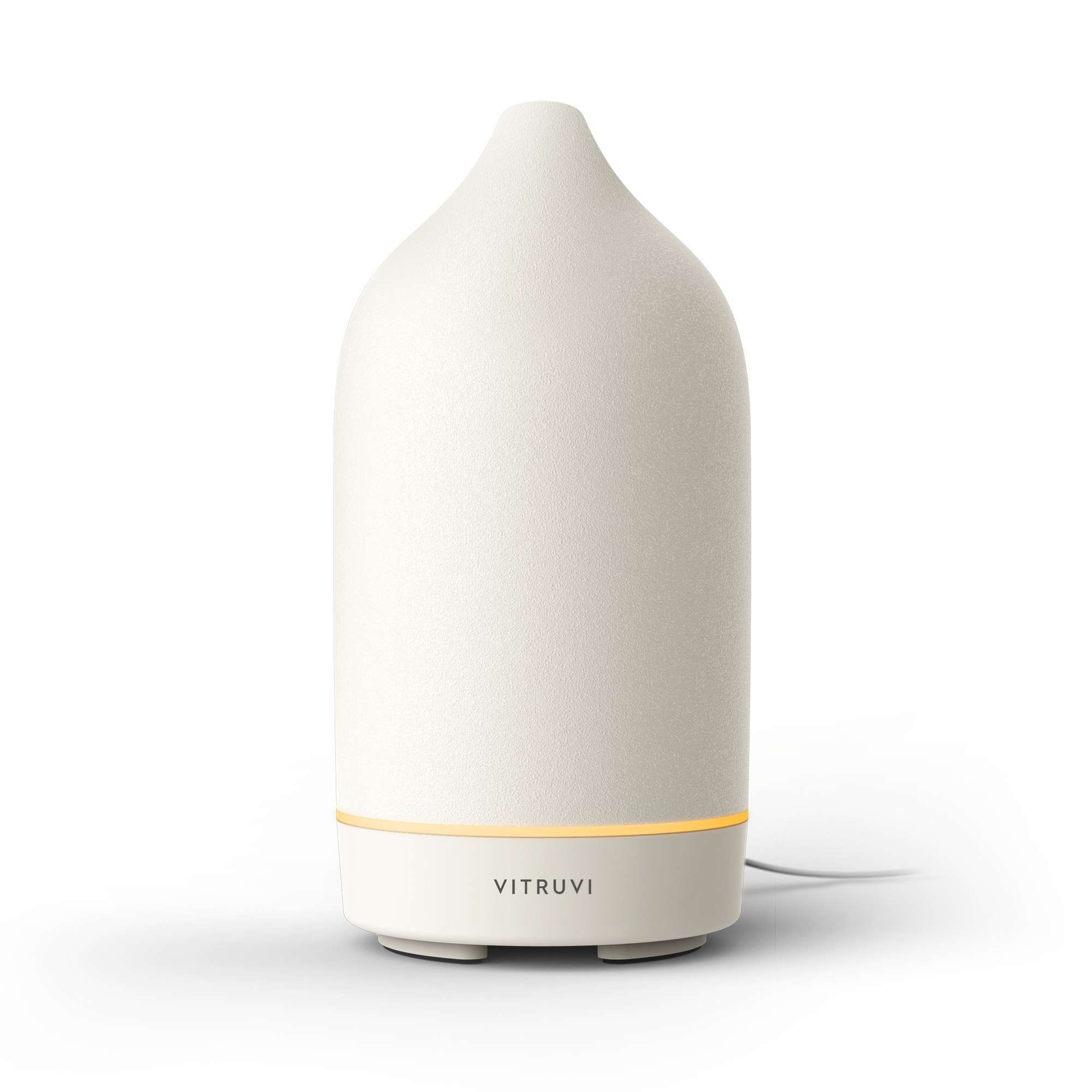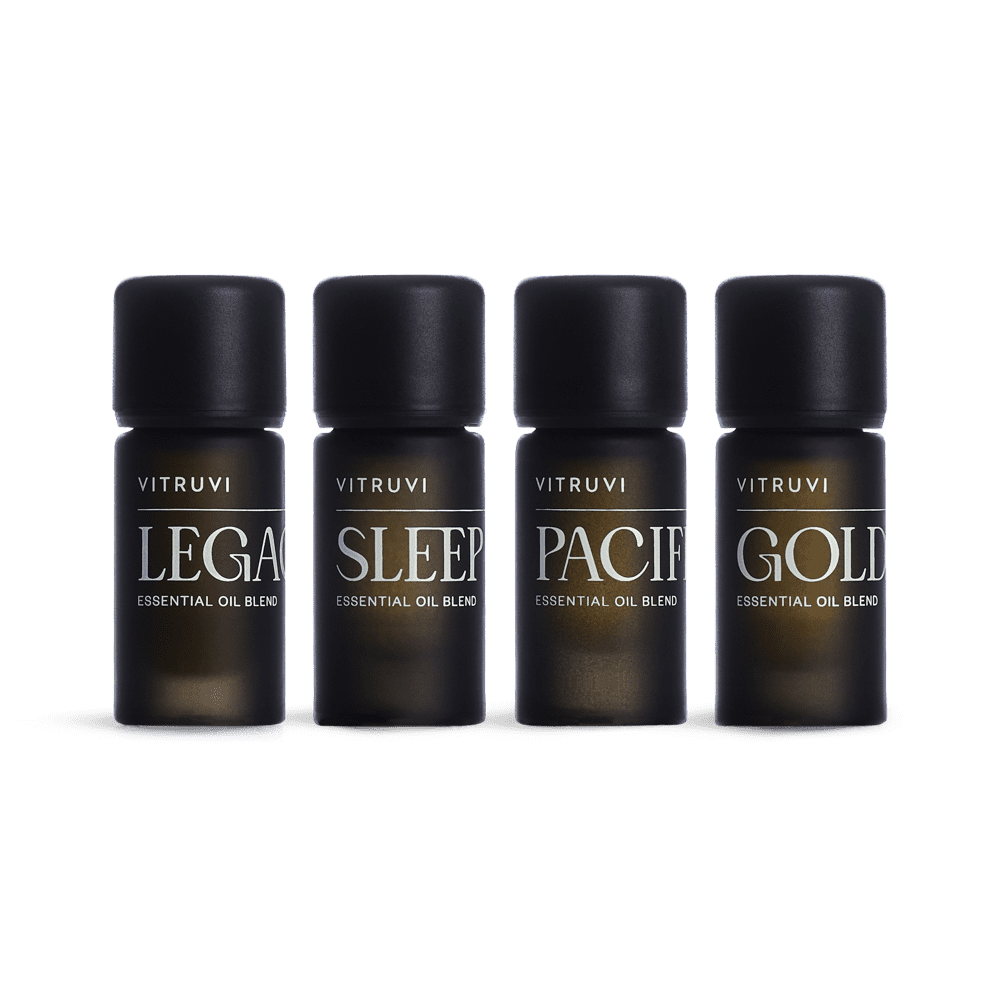Generally speaking, essential oil diffusers are safe for most people when used properly.
These handy devices work by dispersing essential oils—concentrated plant extracts—into the air through a gentle mist.
This allows you to enjoy the therapeutic benefits of essential oils without having to apply them directly to your skin.
However, like anything else, it is important to be aware of the potential risks and learn how to use essential oil diffusers safely to make the most of these devices.
Keep reading to learn how to enjoy your diffuser in a safe, effective, and worry-free way!
Understanding the Health Impacts of Using Essential Oil Diffusers

Essential oils are the concentrated, aromatic essences extracted from various parts of plants, such as flowers, leaves, bark, roots, and more.
These potent liquids capture the plant's "essence," and each oil boasts unique therapeutic properties as a result.
One way to capture these oils' benefits is using an all-natural essential oil diffuser.
Essential oil diffusers are devices designed to disperse essential oils into the air.
When the right oils are used, they can enhance the ambiance of spaces, promote relaxation, improve mood, and even support respiratory health.
For instance, diffusing eucalyptus or peppermint can help clear the airways, while lavender can help reduce stress and promote better sleep.
While essential oil diffusers are generally safe for use, there are some concerns about their impact on lung health.
Lung Health and Safety
Inhalation of certain essential oils can actually trigger asthma symptoms and allergies in sensitive individuals.
Strong odors, such as those from essential oils, may act as irritants and lead to bronchoconstriction, coughing, or shortness of breath.
It is essential to use diffusers in well-ventilated areas and to be mindful of the oils you choose, especially if you have respiratory conditions.
Common Mistakes When Using Essential Oil Diffusers
While essential oil diffusers are easy to use, many people make common mistakes that can impact their effectiveness and user health.
Here are some things to avoid.
Overusing Essential Oils
While it might be tempting to keep your diffuser running all day, this can lead to overexposure.
Overexposure to essential oils can cause headaches, nausea, and even respiratory irritation.
It is important to follow the recommended usage guidelines.
Typically, the diffuser should be run for about 30-60 minutes, followed by a break for the same amount of time.
Using Synthetic or Adulterated Oils
Another mistake is using low-quality or synthetic oils.
These products may contain harmful chemicals that can cause adverse reactions.
Always choose oils labeled as 100% pure and natural, and avoid products containing synthetic fragrances or additives.
Incorrect Dilution
Some diffusers require you to dilute essential oils with water before use.
Using oils without the correct dilution can lead to overly concentrated mist, which can irritate your lungs and skin.
Always follow the manufacturer’s instructions for the proper dilution ratios.
Placing the Diffuser in Inappropriate Locations
Where you place your diffuser can also affect its performance.
Placing it near vents, windows, or very large rooms can disperse the oils too quickly or unevenly.
Position your diffuser in a central, stable location where the mist can disperse evenly throughout the room.
Also, avoid using diffusers in bedrooms, nurseries, or areas where people with respiratory sensitivities spend a lot of time.
Neglecting to Clean the Diffuser Regularly
If not cleaned regularly, diffusers can accumulate dirt, bacteria, and mold over time. This can lead to health issues and reduce the diffuser's effectiveness.
Clean your diffuser regularly according to the manufacturer's instructions to keep it in top condition and avoid the associated health risks.
Ignoring Safety Precautions
Another common mistake is ignoring basic safety precautions.
These include using too much oil, running the diffuser continuously without breaks, or using oils that are not safe for inhalation.
Additionally, diffusers and essential oils should always be kept out of the reach of children and pets, and diffusers should not be used near flammable materials.
These practices can increase the risk of respiratory irritation and other health issues and even act as fire hazards.
Who Should Avoid Using Essential Oil Diffusers?
While most people can safely use essential oil diffusers, pregnant women, children, people with allergies or respiratory conditions, and those using them around pets should exercise caution or avoid them altogether.
Pregnant Women
Pregnant women should be particularly cautious when using essential oils.
Some oils, such as rosemary and clary sage, can stimulate contractions and should be avoided during pregnancy.
Consult your healthcare provider before using essential oils during pregnancy or while breastfeeding.
Children
Children are more sensitive to essential oils than adults.
Some oils, such as peppermint and eucalyptus, can cause respiratory distress in young children. It is advisable to use milder oils, such as lavender or chamomile, and to dilute them more than usual.
Pets
Many essential oils can be toxic to pets, especially cats and dogs.
Oils like tea tree, citrus, and pine can be harmful or even fatal if ingested or inhaled in large quantities.
If you have pets, it is best to use diffusers in areas they cannot access or avoid using certain oils altogether.
Individuals with Allergies or Sensitivities
If you have allergies or sensitivities to certain plants or fragrances, you may be more susceptible to reactions from essential oils.
Test a small amount of oil on your skin before using it in a diffuser.
Benefits of Using Essential Oil Diffusers Safely

When essential oil diffusers are used correctly, they can offer a range of benefits that can enhance mental and physical well-being.
Understanding how to use essential oil diffusers safely will thus allow you to maximize these benefits while minimizing potential risks.
Mental Health Benefits
Essential oil diffusers can have a significant positive impact on mental health. Different essential oils are known for their ability to promote relaxation, reduce stress, and improve mood.
- Stress Relief
Oils like lavender and chamomile are well known for their calming properties. When diffused, these scents can help reduce anxiety and create a more peaceful environment.
- Enhanced Focus
Citrus oils such as lemon and orange can help improve concentration and mental clarity, making them ideal for work or study sessions.
- Mood-Boosting
Diffusing oils like bergamot and ylang-ylang can help elevate mood and promote a sense of well-being.
Physical Health Benefits
In addition to mental health, essential oils can even support physical well-being when diffused properly.
- Respiratory Support
Eucalyptus and peppermint oils can help clear the airways and support respiratory health, particularly during cold and flu season. However, these should be used with caution, especially around young children and individuals with respiratory conditions.
- Sleep Improvement
Lavender and sandalwood oils are often used to promote better sleep. Diffusing these oils before bedtime can help create a calming atmosphere that encourages relaxation and rest.
- Immune System Support
Certain essential oils, such as tea tree and frankincense, have antimicrobial properties that can help support the immune system. Diffusing these oils can contribute to a healthier environment by reducing airborne pathogens.
Frequently Asked Questions (FAQs)
This section addresses additional concerns related to the safety of essential oil diffusers.
Can Essential Oil Diffusers Cause Respiratory Issues?
Yes, certain essential oils can trigger respiratory issues, especially in individuals with asthma or other respiratory conditions.
If you experience any symptoms, discontinue use and consult a healthcare professional.
How Often Should You Use an Essential Oil Diffuser?
A good rule of thumb is to diffuse essential oils for 30-60 minutes, then turn off the diffuser for the same amount of time. This allows your body to adjust to the scent and prevents sensory overload.
While continuous diffusion is not harmful in small doses, it may lead to sensory adaptation and reduce the oils' effectiveness over time.
Are There Essential Oils That Should Not Be Diffused?
Yes, avoid diffusing toxic oils like bitter almonds, pennyroyal, sassafras, and wintergreen.
Always research an oil's safety before use, especially if you have allergies or sensitivities. Also, check the diffuser manufacturer's guide for recommended essential oils.
Key Takeaways: Are Essential Oil Diffusers Safe
Essential oil diffusers are generally safe when used properly. However, being mindful of potential risks and using them responsibly is crucial.
If you are short on time, here is the TLDR about the safety of essential oil diffusers.
- Always use high-quality, pure essential oils to avoid harmful additives.
- Diffuse oils intermittently, typically for 30-60 minutes, followed by a break.
- Use essential oils in well-ventilated areas, as they can trigger respiratory issues in sensitive people.
- Essential oils diffusers should be cautiously used around pregnant women, children, pets, and individuals with respiratory conditions.
- Consult a professional if needed.
By following these guidelines, you can enjoy the benefits of essential oil diffusers without compromising your health and well-being.

